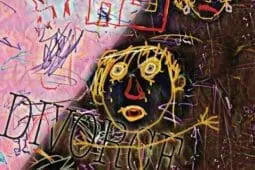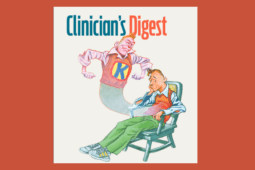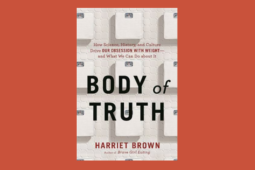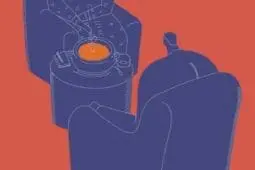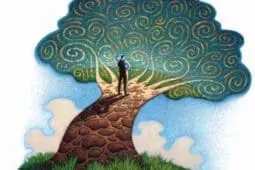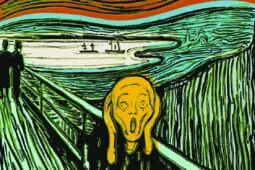The Field
The View From Black America
Listening to the Untold StoriesMany poor, young, black people see themselves as trapped behind a wall-less prison with no exits. They know all too well that their daily experience—whether... Read more
Community Mental Health Today
Encompassing the Big & the SmallThe promise of the community mental health movement of the 1960s, providing high-quality psychological and social services to poor families, remains unfullled... Read more
Questions have been raised about whether the effectiveness of cognitive behavioral therapy, the field’s most researched treatment model, has been overstated. Read more
Destigmatizing Autism
The Future of NeurodiversityAuthor Steve Silberman discusses what it means to view autistic people as individuals seeing the world in a different way, rather than just a checklist of... Read more
What the Financial Crisis Reveals About Our Psyche and Values
Confronting our Definitions of Wealth in the Therapy RoomThe current economic crisis may be no more than a rather large bump in the golden road of endlessly self-renewing American prosperity. Still, it's hard not to... Read more
Reflections on the Divorce Revolution
Assessing Our ImpactAre you a therapist that's "marriage friendly?" It's the inclination towards helping clients in good relationships stay together. Read more
America’s Opportunity Chasm
A Noted Scholar Documents Our Decline in Social MobilityRobert Putnam documents the myriad psychological, health, and political consequences of the ever-growing disparities between rich and poor in America today. Read more
Facing Our Dark Side
Some Forms of Self-Compassion Are Harder than OthersAchieving a genuine state of self-compassion is a more challenging undertaking than many realize. Far from a little feel-better incantation you offer yourself... Read more
Moments of Meaning
Unexpected Lessons from PracticeThree clinicians share stories of challenging cases that show how the most surprising outcomes often have nothing to do with therapeutic brilliance or... Read more
Life after Trauma
What are the possibilities for post-traumatic growth?The new emphasis on the transformative power of trauma can be a template for false assumptions about the “gift” of suffering and the meaning of recovery. Read more
Personality and Habit Change
Are You an Upholder, Obliger, Questioner, or Rebel?In her first book, The Happiness Project, Gretchen Rubin tried to answer the question “How do I become happier?” With her new book on changing the habits... Read more
How Psychotherapy Helps Us Recover the Beauty in Our Lives
Questions for Helping Therapy Clients Reclaim MeaningMany walk into the therapist's consulting room exactly at the moment that they have been stripped to the core of their being. While not at the physical... Read more
Uncovering the Source of Suicidality with Brain Science
Are Serotonin Levels the Key Factor in Suicidal Depression?I'm at the New York State Psychiatric Institute in northern Manhattan. My guide, Victoria, has been studying the brains of people who committed suicide, and... Read more
Since it was introduced as an anesthetic in the 1970s, ketamine has occupied an uncertain pharmacological status. It’s been used as both a Vietnam-era... Read more
Rediscovering Happiness
The Use of Positive Childhood Triggers in PsychotherapyTo create deep change, we need to help people mine the sources of intense pleasure in their lives, wherever they may find them. Read more
Brave New Couples
What Can Science Tell Us about the Changing Face of Couplehood Today?Susan Johnson, developer of Emotionally Focused Couples Therapy, discusses what the science of love says about what couples can expect when they rebel too much... Read more
Getting Over Weight?
A Critic of our Cultural Obsession Goes Too FarA critic of one of our central cultural obsessions goes too far Read more
Spitting in the Client's Soup
Don’t Overthink Your InterventionsIn our profession, it’s often more alluring to explore new gimmicks than to acknowledge that our success largely hinges on simple, commonsense factors. Read more
What clinical, ethical, and legal issues should we be considering as distance therapy becomes a more common form of practice? Read more
The State of Our Art
Do Our Old Ways Fit the New Times?While the number of people in psychotherapy keeps declining, surveys reveal that potential clients would still rather talk to a therapist than fill a... Read more
It’s time we address the psychological toll of the daily bombardment of information that permeates our lives. Read more
To move forward, our profession needs a more consistent message about what we have to offer. Read more
Manualized psychotherapy is squeezing out people on the margins of mainstream society. Read more
To stay relevant in a changing world, we need to address the engagement styles of today’s prospective clients. Read more
Mary Pipher on Leaving Our Biases outside the Consulting Room
Finding Respect for All ClientsFrom the moment I met the Correys in my waiting room, I was baffled about why they were together. Frank was tall, good looking and suave; Donna dowdy and... Read more
Stronger Medicine
Anti-Depressants Haven't Made Therapy ObsoleteAmericans have a history of valuing quick-fix solutions to difficult problems. But the simplistic psychopharmacological approach to depressive disorders... Read more
The Mindfulness Explosion
The Perils of Mainstream AcceptanceBy replacing the exotic aura of spirituality with the language of science and a down-to-earth self-help approach, mindfulness has brought practices once... Read more
The Reluctant Guru
Staying in the Moment with Jon Kabat-ZinnA Conversation with Jon Kabat-ZinnSince he first developed Mindfulness-Based Stress Reduction in 1979, Jon Kabat-Zinn has not only become a key figure in... Read more
The Fiction of the Self
The Paradox of Mindfulness in Clinical PracticeIf we engage in meditation long enough, we discover that our sense of being a separate, coherent, enduring self is actually a delusion maintained by our... Read more
A Brief History of Anxiety
The Invention of a Modern MalaiseLife today is, in many ways, easier than it used to be. Therefore, shouldn’t we be less anxious than we once were? Read more






